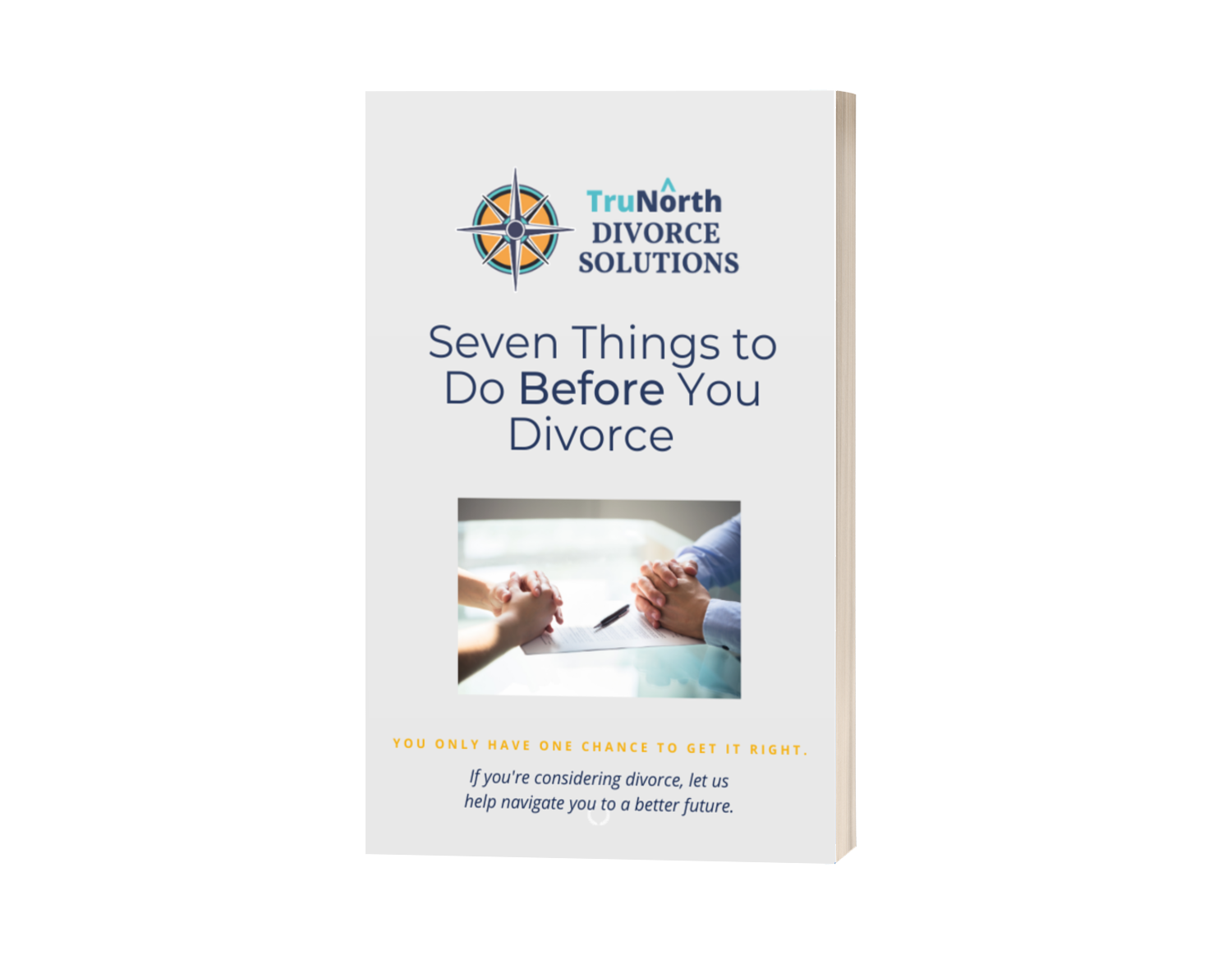SEVEN THINGS TO DO BEFORE YOU DIVORCE
Get Our FREE eBook!

So you’ve had it with your spouse and are thinking it’s really over. You’ve mentally prepared for moving on and are just waiting for the right opportunity or the next major blowup to pull the plug. There are many reasons why you might want to hit the pause button on that divorce.
Hastily making a short-term decision that may not serve you well in the long run. You may not have exhausted potential sources of help to repair the marriage. Someone may be overly emphasizing the positives of being free versus the negatives. A failure to address your own shortcomings and character flaws that may also be contributing to your unhappiness.
Each of these deserves discussion in its own right. The point of this particular piece, though, is to identify primary reasons you may want to hold off before you tell your spouse you’re done with the marriage or move out (even if your spouse has already told you s/he wants a divorce).
Unless you or your children are at risk of physical or serious psychological harm, here are nine reasons why you should pause before pulling the trigger on a separation or divorce:
What can you do to avoid these mistakes? Start with a Certified Divorce Coach®. S/he can help you explore if you’re ready for separation or divorce and, if not, what steps you might take. If you do decide to move forward with a separation/divorce, s/he can assist you with determining how to tell your spouse, children, family, and friends, as well as choosing the right divorce process and lawyer.
You should also talk with a Certified Divorce Financial Analyst (CDFA®) who can look at your complete financial picture and assess what impact a divorce could have on your ability to pay your bills, keep your house, put the kids through college, or fund your retirement.
Additionally, you should talk with two or three different family law attorneys to identify where you may be vulnerable and how best to proceed legally.
If you know or suspect your spouse has serious psychological or psychiatric issues, talk with a qualified psychotherapist about how to best move forward. If you or your children are at risk for physical harm, this is imperative! Above all, protect yourself and your children.
It may very well be that the best path for you and your children, overall, is a divorce. A few years from now you’ll be really glad you took the time now to address the issues that could adversely affect your long-term outcome.
Get A free Consultation
484.321.6990
hello@trunorthdivorce.com